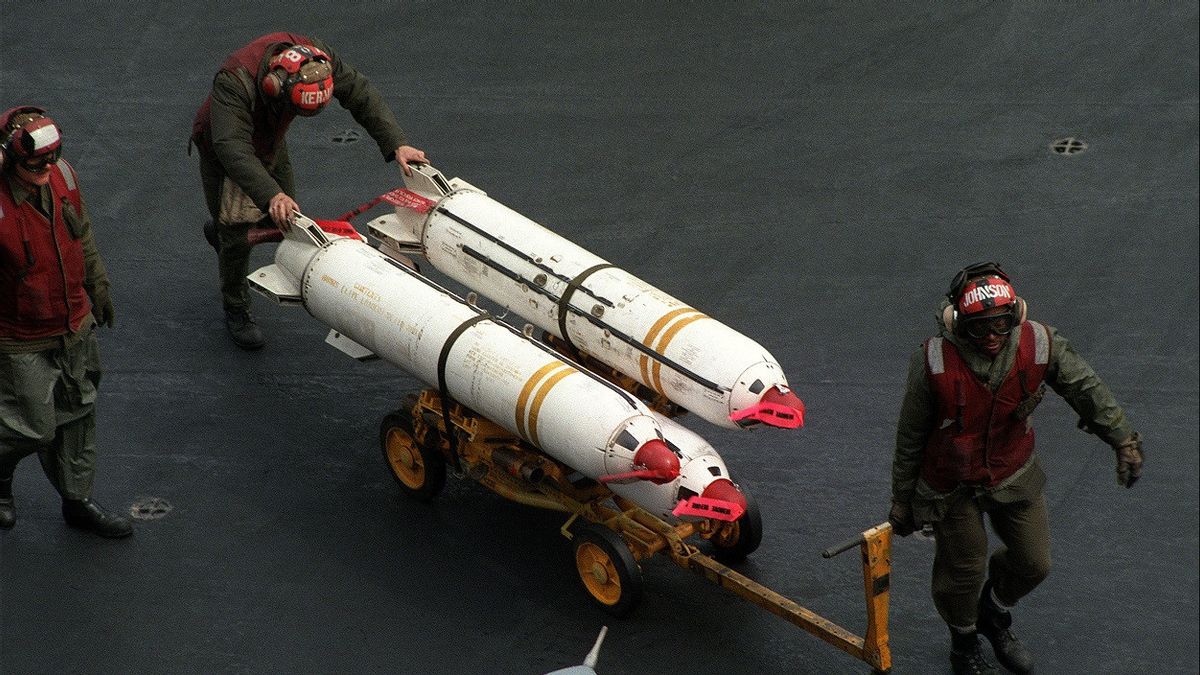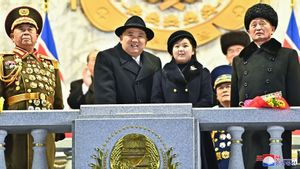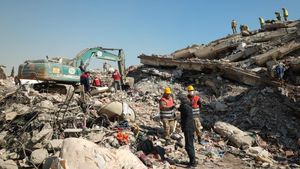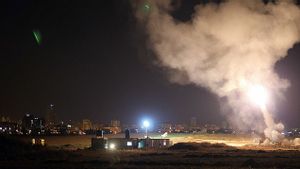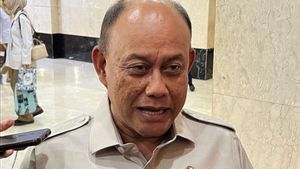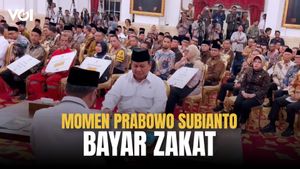JAKARTA - Ukraine has again submitted a request for arms assistance from the United States, this time Kyiv asking for cluster bombs that are planned to be carried by drones, rather than the usual planes, to deal with Russian troops, according to two members of the US Parliament.
Cluster munitions, banned by more than 120 countries, typically release large quantities of small bombs that can kill indiscriminately over a wide area, threatening civilians.
Ukraine wants the MK-20, an air-delivered cluster bomb, by delivering it via drone, said US lawmakers Jason Crow and Adam Smith, who both serve on the House of Representatives Armed Services Committee, reported Reuters March 8.
This request was in addition to the 155 mm artillery cluster rounds that Ukraine had requested, they said. They say Ukrainian officials pressed US lawmakers at the Munich Security Conference last month to press for White House approval.

Ukraine hopes the cluster munitions will give it an edge in the fierce fight against Russian forces in the east.
The Ukrainian government has said publicly that it wants US cluster munitions. The petition for MK-20, also known as CBU-100, has never been reported before.
It is known, the MK-20 is usually 'sent' by plane. The bomb opened mid-flight, releasing more than 240 dart-like submunitions, or small bombs.
The Ukrainian military believes these submunitions have "better armor-piercing capabilities" than drone-dropped weapons, said Smith, the top Democrat on the Armed Services Committee.
Ukraine is known to have used drones extensively for surveillance and to drop explosives on Russian troops.

Crow, a Democrat, and US Army veteran, said he might support awarding the MK-20s with guarantees Ukraine would remove the bombs and use them in non-cluster work.
Although production of the MK-20 bomb ended years ago, the US military still maintains a stockpile of the Cold War era weapon.
Meanwhile, Republican senator Lindsey Graham, who also participated in last month's conference, confirmed that Ukrainian officials in Munich urged US lawmakers to pressure the White House to provide Kyiv with cluster munitions. He said he would do it this week.
A congressional aide, who spoke on condition of anonymity, said Ukrainian officials had also been privately lobbying lawmakers in Washington to press for White House approval.
"That's not going to happen," Smith said, referring to the signing of the Biden Administration agreement.
Since the start of the conflict, Ukraine has requested - and largely received - weapons the US initially refused, including HIMARS missile launchers, Patriot air defense batteries to the latest Abrams tanks.

But administering cluster munitions could be a step too far for the government and some in Congress.
Opponents argue that when bombs are dispersed, they can injure and kill civilians and have a high failure rate, posing a danger for years after the conflict has ended.
The 2008 pact banning the production, use and stockpiling of cluster munitions has been adopted by 123 countries, including most of NATO's 28 members. But, the United States, Russia and Ukraine have refused to join.
Giving Ukrainians “banned weapons would undermine their moral authority in a way that (Russian President Vladimir) Putin would exploit,” said Tom Malinowski, a former congressman who served as the State Department's top human rights official.
However, there is some support in Congress. The congressional staff member said most Republicans "rather agreed" with Ukraine's request.
SEE ALSO:
"This is a war in which (Ukraine) is outnumbered. And cluster munitions are absolutely lethal to both mass formations and Russian armor. In areas where they are going to use these items, there are no civilians," he said.
A 2009 law banned the export of US cluster munitions with a bomb failure rate higher than 1 percent, which includes nearly all military stockpiles. US President Joe Biden can ignore the ban.
Ukrainian and Russian troops have used such weapons since Moscow first seized the Kyiv region in 2014, according to news reports and human rights groups.
The English, Chinese, Japanese, Arabic, and French versions are automatically generated by the AI. So there may still be inaccuracies in translating, please always see Indonesian as our main language. (system supported by DigitalSiber.id)
